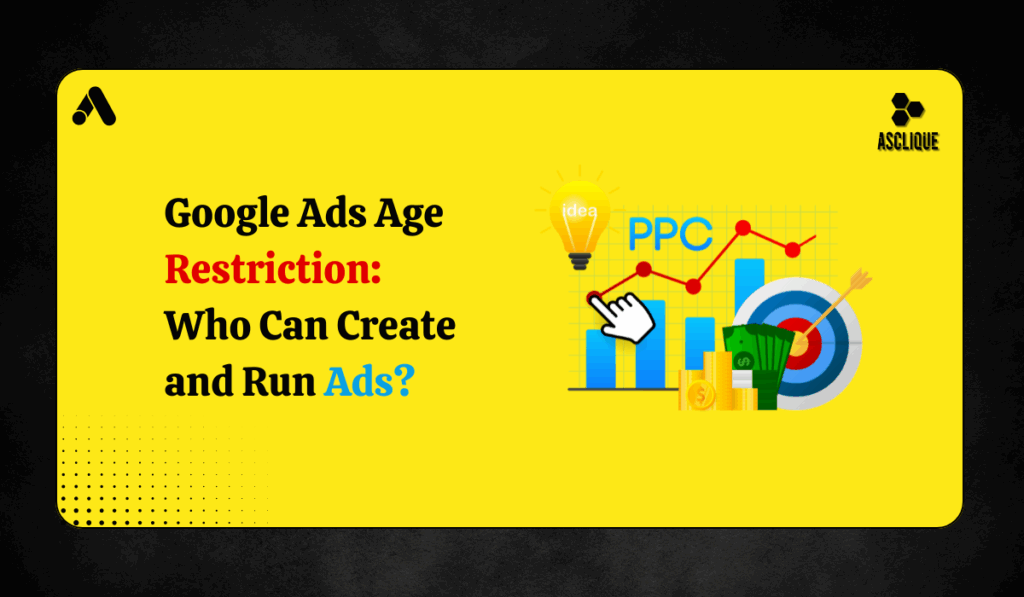Google Ads is perhaps one of the most potent platforms for advertising businesses, products, or personal brands. But not every adult can simply dive in and begin running ads. You are probably wondering if age is an issue when using Google Ads. The quick answer is: yes, it is. In this article, we will dissect what Google Ads age limit means, who can utilize the platform, and what young advertisers need to know.
Why Age Matters on Google Ads
Google has stringent regulations regarding who can view and use its services, particularly when payment is involved. Placing ads takes a billing account, data monitoring, and sometimes legal permission—things that legally minors cannot be entirely accountable for.
Based on Google’s Terms of Service, the users need to be 18 years and above to fully access creating and managing a Google Ads account. This is primarily to meet global legal requirements, such as data protection regulations and advertising codes.
Minimum Age Requirement: What Google Says
Here’s a straightforward glance at what Google expects:
- Minimum age to use Google Ads: 18 years old
- Users under the age of 18: Can’t create or manage ads directly
- Business or organization accounts: Adults can manage on behalf of underage users (e.g., parents or guardians handling an ad campaign for a teenage entrepreneur)
This policy follows the Children’s Online Privacy Protection Act (COPPA) in the United States and equivalent legislation globally that limits the collection and usage of information from minors.
Key Reasons Behind the Age Restriction
Let’s see why this age restriction exists:
- Legal Responsibility: Financial transactions demand a legal contract. Minors are unable to legally sign contracts in most nations.
- Data Privacy: Google has to adhere to laws that guard children’s personal data.
- Advertising Ethics: Advertisements need strict guidance. Google doesn’t want to allow minors to handle ads because they might break policies accidentally.
- Use of a Credit Card: It takes a payment source to run ads. Underage users generally don’t have use of a credit card in their name.
Are There Any Workarounds for Young Advertisers?
If you are under the age of 18 and would like to advertise a business or personal initiative, there is no need to worry—there are still alternatives to participating in online advertising. You may not be able to directly manage a Google Ads account, but you can:
- Work with parent or guardian: They can set up and control the account for you.
- Use social media advertising under supervision: Other platforms have less restrictive age policies, yet still need to be monitored by adults.
- Prioritize organic marketing: Study SEO, content marketing, and social media practices that don’t include paid advertising.
All these alternatives allow young marketers to learn skills and gain an audience without violating platform policies.
Real-World Stats: Why This Policy Matters
- 71% of American teenagers use social media every day, and most of them wish to create brands or businesses on the internet.
- Yet just 12% of those below 18 years old have complete knowledge of digital advertising compliance and data protection legislation, as Common Sense Media found from a survey.
- Google Ads processes more than 8.5 billion searches daily, which translates to a scale where ensuring age policies is paramount for security and compliance.
These figures demonstrate the high level of interest among younger users but do mean there is also a genuine requirement for age restrictions and education.
What Happens If You Violate the Age Restriction?
If a person under the age of 18 attempts to create a Google Ads account:
- Account suspension: Suspended or completely disabled by Google.
- Loss of funds: Any ad credit or pre-paid amount could be lost.
- Permanent ban: Repeat violations could lead to being banned from using Google Ads in the future.
It’s not worth the risk. Always follow the rules, or work with a trusted adult if you’re too young to manage an account yourself.
Age Restriction and Google Ads for Schools or Teens’ Projects
Certain schools also have online advertising projects where students design dummy advertisements. Such is educational and often handled under a teacher’s or school’s admin account. If you are part of such a project, ensure that it is well labeled as non-commercial and overseen by an adult.
For teen entrepreneurs, it is not only permissible but also advisable for them to have a partner adult handle ads. Several popular teen brands have done this and remained within Google’s guidelines.
Final Thoughts
So, who can create and serve ads on Google Ads? The answer is adults 18 years and older. The Google Ads age limit is there to safeguard young users, keep things legal, and maintain advertising standards.
With that being said, the platform does not exclude younger marketers—it simply requires that they serve adults. If you are under the age of 18, use this time to learn, test free tools, and get ready to be in full control when you reach eligibility.
By obeying the rules early, you’ll create a solid foundation for future successful digital marketing.
FAQ’s
What is the minimum age to create a Google Ads account?
You have to be at least 18 years of age in order to create and operate a Google Ads account since it entails legal terms and payment processing.
Can a teenager run Google Ads with parental help?
Yes, the account may be operated by a parent or guardian on behalf of a teenager. This enables younger individuals to advertise responsibly under the management of an adult.
What happens if someone underage creates a Google Ads account?
Google can freeze or terminate the account, and funds or ad credits can be lost. Multiple offenses can result in permanent termination.
Are there other platforms that allow younger users to advertise?
There are some sites such as Instagram or TikTok that have less available, but still need adult control and ownership for paid advertisement.

